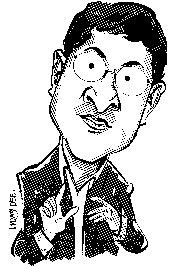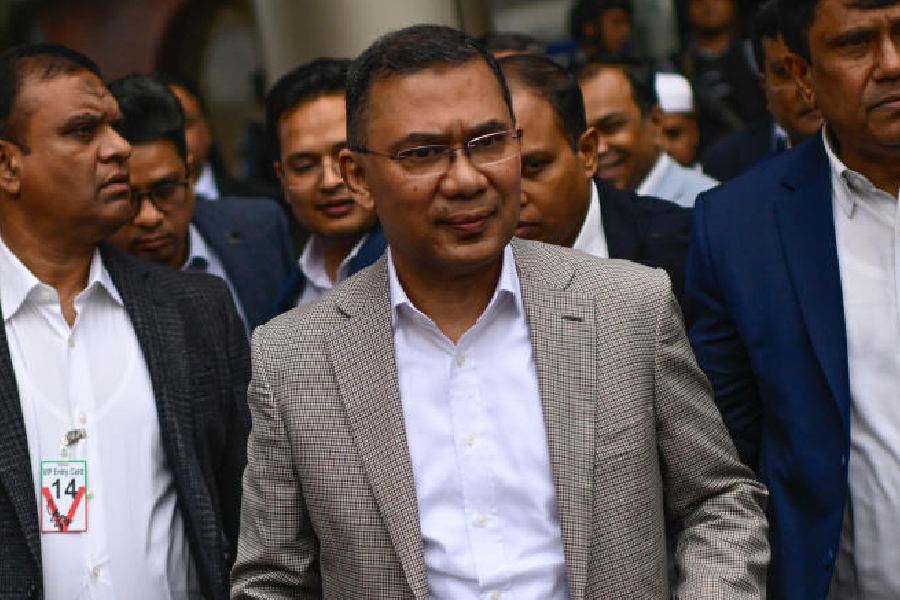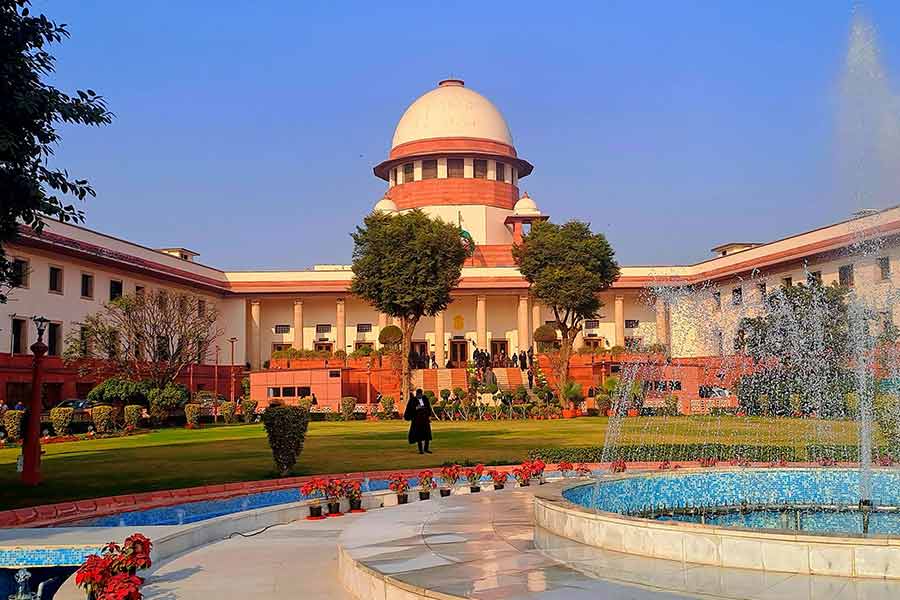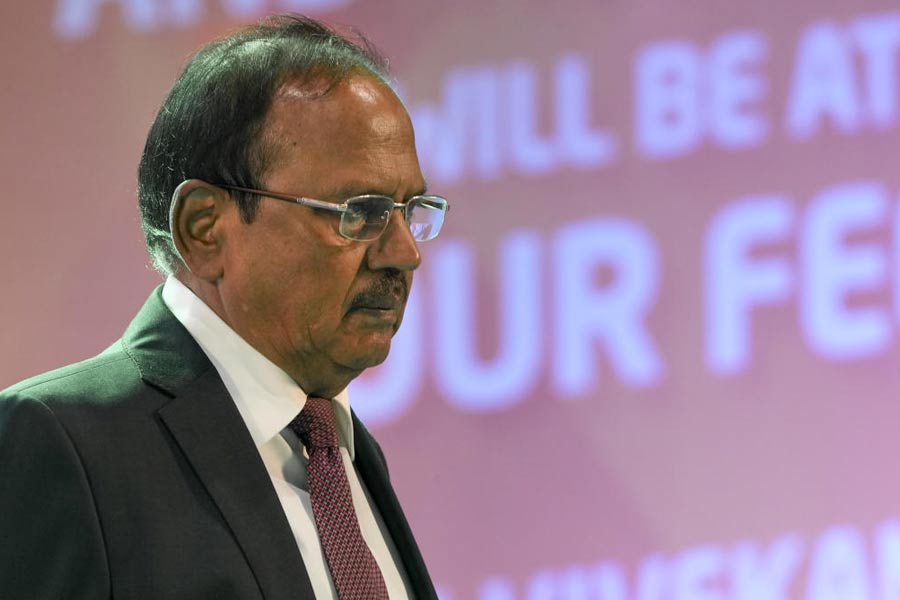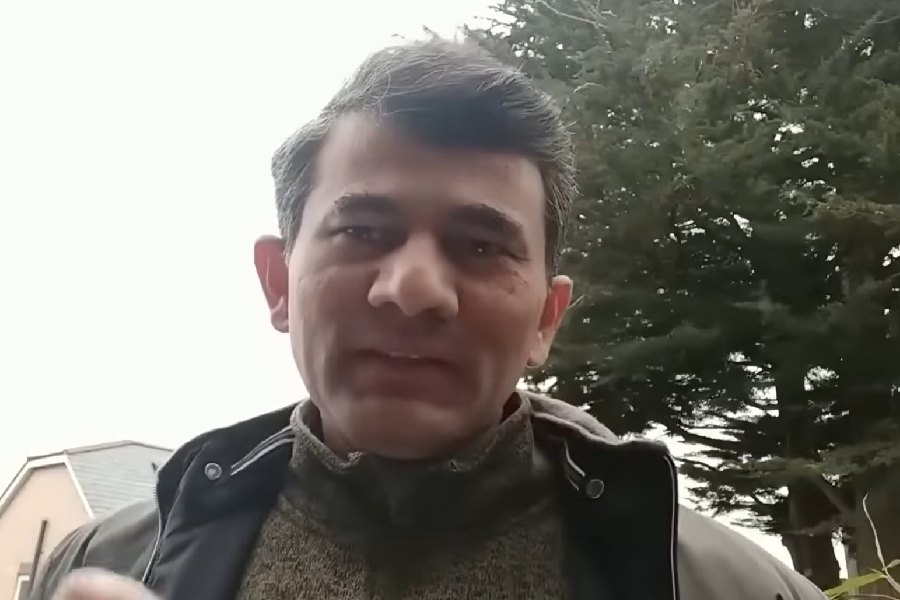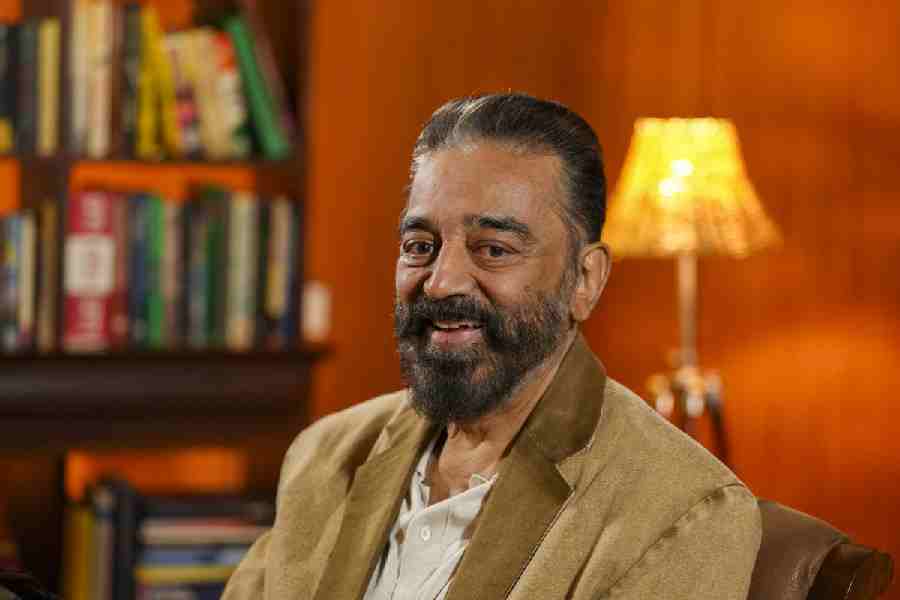 |
The Imperial is just the place for a meeting with Ramachandra Guha. For one, The Imperial, arguably the most elegant hotel in New Delhi, is where the writer, known for his elegant prose, is staying. And, second, this is, after all, where it all began.
One October day nine years ago, Guha sat with London publisher Richard Strauss, then with Picador, at The Imperial. Strauss — he was the one, incidentally, who spotted Bridget Jones after he read Helen Fielding’s column in a newspaper — had called Guha up in Bangalore, asking him if they could meet.
“He had read an essay I had written for an Oxford journal called Past and Present. He said, ‘What are you doing now?’ I said I was planning to convert my essay on cricket into a book. And he said, ‘No, no, don’t do that — write a history of India since 1947.’ I was completely taken aback,” says Guha.
The book — India after Gandhi: The History of the World’s Largest Democracy — is to be released in Calcutta today, three days after its launch in Delhi. The book has been lauded by British critics, and now Guha, 49, is waiting for a reaction from readers in India. He needn’t worry. “It’s the first book of its kind on independent India,” says a critic and former academic. “And Ram is the finest historian writing in India today.”
That’s high praise, for Guha is not a trained historian. He graduated in economics from Delhi’s St Stephen’s College (where he modestly admits to having played some “decent” cricket), and then went on to complete his masters degree from the Delhi School of Economics. “But as I often say, I am a second-class cricketer, and a second-class economist,” he says.
What he is, though — and here everybody would agree — is an excellent writer, a rare academic who is scholarly, yet lucid. Readers of The Telegraph would know that, for Guha has been writing regularly for the paper for 13 years — and, it may be added, taking occasional pot shots at Bengalis.
Thanks to his surname, many think Guha is a Bengali. Not so. The man is a Tamilian — his father was named after a hunter who ferried Ram and Sita across a river in the Ramayana. In the south, Guha points out, he would have been known as G. Ramachandra. Since he grew up in the north — he schooled at Doon — Guha became his surname. Just as well, as his Bengali fans would agree, for G. Ramachandra doesn’t quite have the same ring as Ram Guha. “Yes, people think I am a Bengali. I get all these letters which say only Bengalis have this self hatred,” he says with a laugh.
“I call myself a Nehruvian Indian. I am a Tamilian, four generations settled in Bangalore. I grew up in Dehra Dun, where my father was a scientist. I studied in Delhi and I did my PhD in Calcutta. So I know what it means to be a Bengali communist, and I know what it means to be a Tamil separatist.”
And a Doon School elitist? “Sure, sure,” he says.
The book, he holds, is a reflection of many of those identities and skills — as an economist, a sociologist, a historian and a journalist. “This book brings together all that I have ever done,” he says.
The book, with its 800 pages (and that’s after he deleted 40,000 words), took eight years to complete. From May to September, when the rains washed Bangalore, he sat working on his laptop at home, where he lives with his graphic-designer wife and two children. The rest of the year he researched in Delhi or London. He consulted some 80 collections of private papers. “Some of these had never been used before because Indian historians stopped at 1947.”
At the Nehru library, he stumbled upon a handwritten letter from Jawaharlal Nehru to C. Rajagopalachari on why B.R. Ambedkar had to be included in the Cabinet. The academic’s delight in finding new material is evident. “Handwritten,” he exults. “From Nehru to Rajaji! On Ambedkar!”
Guha looks — and speaks — like an overgrown schoolboy and some of his one-liners come straight out of a public school debating hall. But the man loves his English, for his prose reveals both his fondness for and mastery of the language — a reason, no doubt, why Bengalis tend to accept him as one of their own.
Like many academics, he holds strong views on most subjects. But unlike most academics, he is not cautious in his use of words. A friend from his college days calls him “fiercely independent” — and it is a quality that shows in Guha’s speech and in his writing.
There was no stopping Guha, for instance, at the book launch at the India Habitat Centre in Delhi. He called Rajiv Gandhi “a bumbler” (“woh to bhondu tha,” he added for the Hindi speaking), and said that if Lal Bahadur Shastri had not died in 1966, “Sanjay Gandhi would have been at best a failed auto-mechanic”. And he refused to say anything about Subhash Chandra Bose, pleading that his next stop was Calcutta. It was said jokingly, but it was still surprising for he has never been shy of courting controversy.
It’s a quality that was most visible seven years ago when, in his column in The Hindu, he described author-activist Arundhati Roy as the Arun Shourie of the Left. The outcry that followed is still to die down. “I lost friends. Some people still don’t talk to me,” he says. “I am a liberal slightly inclined to the left. But I am opposed to extremism, to intellectual dishonesty and intellectual vulgarisation, whether it comes from the right or the left. My critique of Arundhati Roy was in that context. I found her an intellectual vulgariser of the left which is why I called her the Arun Shourie of the left — she falsified, exaggerated, used hyperboles, suppressed fact, overwrote — all that Shourie did from the other side.”
Roy, who too is not known for her reticence, in turn called Guha a “stalker who shows up at my doorstep every other Sunday.” But the two have met since then, said hello and sat together.
“I am told she is writing another novel. I wish her good luck. I am sure she will write a very good novel. I am glad she has taken my advice (stick to fiction, he urged her in his column) —even if eight years after it was offered.”
Guha says he was a leftist once but stresses that he was always uncomfortable with dogma. “But I was not a party leftist. Very early I read George Orwell. No writer, he said, can be a loyal member of a political party, with the emphasis on the word loyal.”
Guha connects his thoughts, as he does through the conversation, with the theme of his book — India. “One of the beauties of living in India is that you don’t have to be a party person. Look at me: I am hated by the BJP, disliked by the Communists and distrusted by the Congress. It is a tribute to the greatness of this country that every political party can hate you and you can still be a successful academic and writer.”
He drew his spirit of independence, he says, from his mentors — Kannada writer Shivaram Karanth and two Bengalis, sociologist Andre Beteille and author Mahasveta Devi. “If Prakash Karat says, say this, JNU intellectuals would say that. But these people showed me that in a country like India you can be independent. I am so fortunate to be born in India. I am even more fortunate not to be born and live in Singapore or Scandinavia, where I may have a happier life with a 24-hour water supply, but it will be utterly boring.”
The country — and that old slogan, unity in diversity — accosted him during a trip to Punjab two years ago. In 1984, when Sikhs were being killed across India, Guha was in Calcutta, which was mostly peaceful. (“And the great thing about being truly independent is that not only can you criticise, you can also praise. Jyoti Basu was one of the reasons few Sikhs were hurt in Bengal.”) But Guha pledged then to visit the Golden Temple in Amritsar, which he finally did 20 years later.
In 2005, he was invited to Punjab for a talk. He decided to drive up to Amritsar and passed the busy market town of Khanna. “I saw a sign of the Indian Bank, and it said, Khanna branch, headquarters Rajaji Salai, Chennai.” And then he saw a goods train pass by. Every bogey had its own marking — south-eastern railways, northern railways and so on. “These were graphic demonstrations of the unity of India amidst all this diversity,” says Guha.
Guha says he is “lousy” with timing — “I was a lousy batsman and a lousier fielder” — but the book has come at the right time. “If I had written this book 10 years ago, it certainly wouldn’t have been half as worthy as a book and it certainly wouldn’t have satisfied me,” Guha says. “It came at the right time in my career — and in a sense it will be the most important thing I will ever do.”
For a ‘Bengali’, he’s rather modest.

